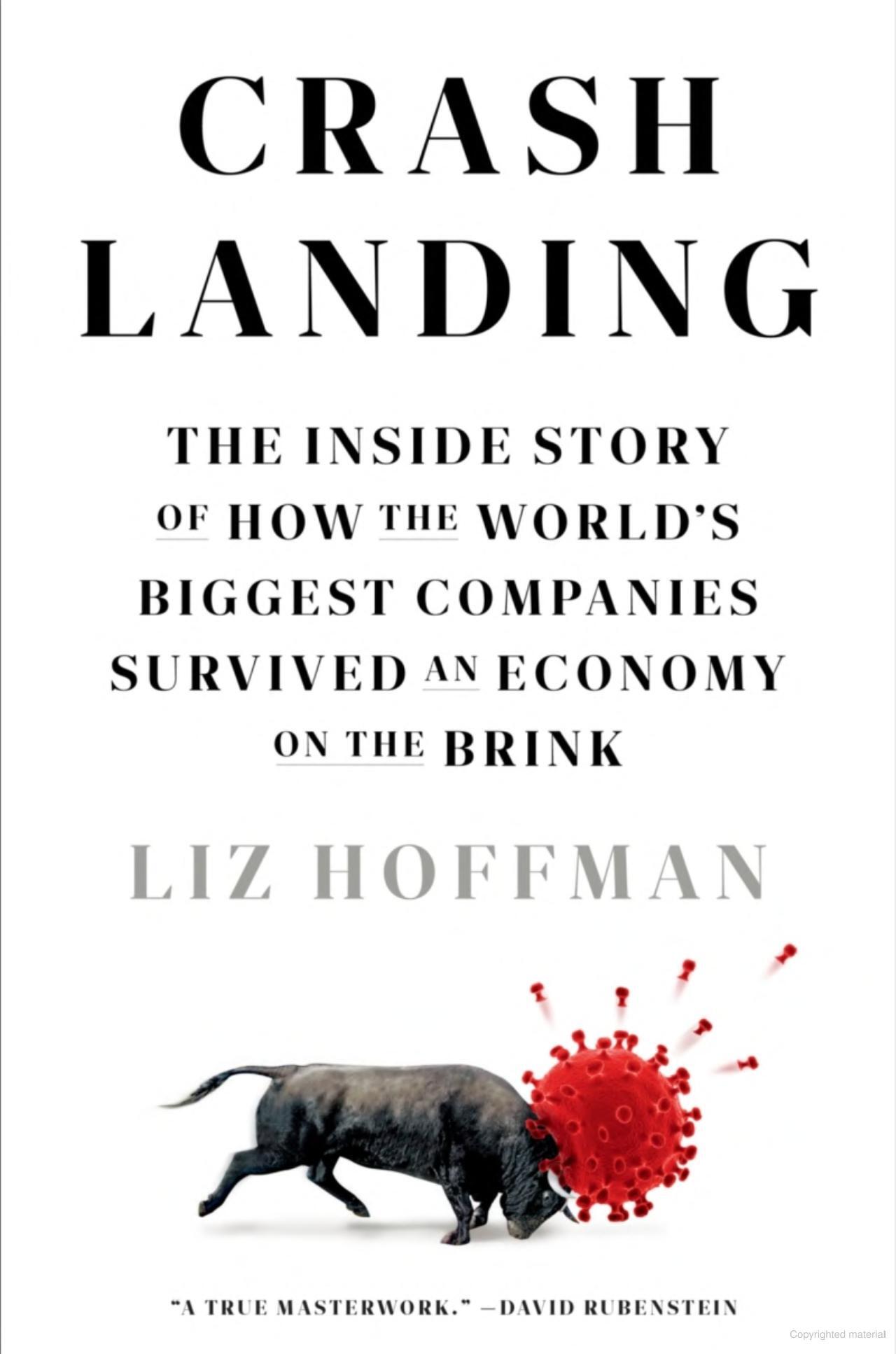Crash Landing takes us through the early stages of the coronavirus pandemic as its nascent effects quickly took a huge toll on corporate America. It’s an engrossing tale of how business leaders navigated uncharted waters in an effort to ensure the survival of the companies they led, and themselves as leaders.
Liz Hoffman is an experienced business journalist whose connections afforded her unparalleled access to myriad executives, who shared details about corporate struggles that quickly became the new normal. As the author points out, “executives who were used to three-year plans were making decisions on the fly, only to have to amend them days later, time and again.”
Crash Landing covers a wide swath of companies in travel, hospitality, finance, and manufacturing. Readers are privy to conversations that took place in the boardrooms at Delta, Ford, Hilton, Airbnb, and Goldman Sachs, as well as the inner sanctums of Capitol Hill.
The book is full of anecdotes that demonstrate most industry titans were in the exact same position as everyone else. None saw this coming and unfolding how it did – the corporate bigwigs were as blindsided and in the dark as the rest of us.
“It was the ultimate test for CEOs, and almost none of them saw it coming,” she writes.
The author provides readers a window into the lives of many C-suite executives and politicians, as they grappled with the virus’ ruinous global economic impact and the attendant financial market fallout. Hoffman conveys these stories without heaping gratuitous praise on those who gave her this exceptional perspective and access. She presents the information in clear language that any reader can easily follow.
Crash Landing shows how various business leaders scrambled and hustled to quickly figure out how to deal with the unique challenges facing their companies as the economy and markets came perilously close to total collapse. It talks about the shifts in leadership behaviours and mindsets never anticipated before the crisis and touches on the pandemic’s implications for the future of work, corporate leadership, and capitalism itself.
The crisis undoubtedly changed how many leaders lead, which could have a lasting and potentially long-term effect on corporate leadership. In the book’s conclusion, Hoffman makes an observation about business leaders, saying “they became more communicative and transparent, found their voices on policy issues, and re-established connections with their workers that they had lost during a benign decade that afforded them the right to be distant.”
It will be interesting to see where we are a decade out from the pandemic.
Hoffman did a wonderful job with her first book and I highly recommend Crash Landing to anyone interested in going behind the scenes for a glimpse of the inner workings of corporate and political America, during a challenging period of virtually unprecedented turmoil.


